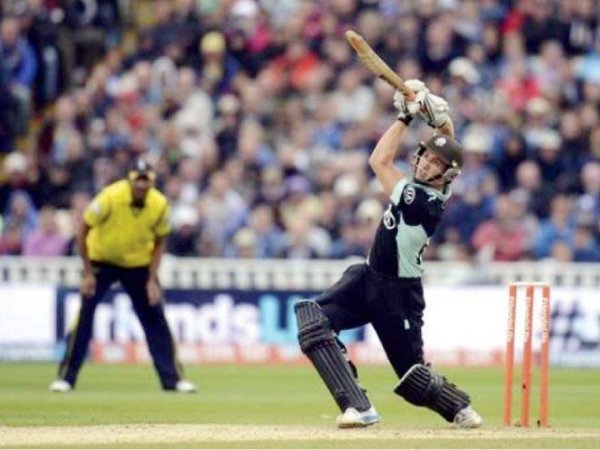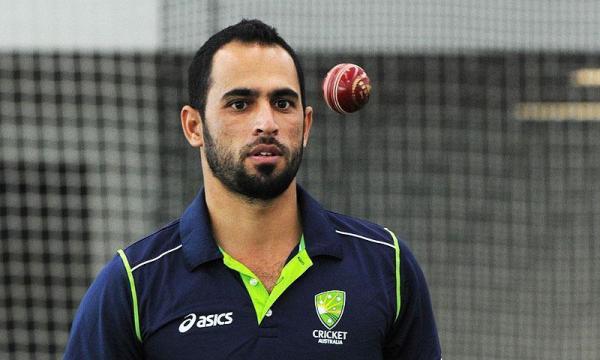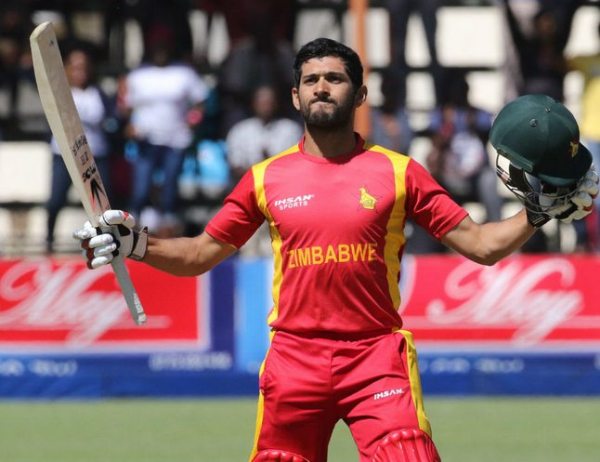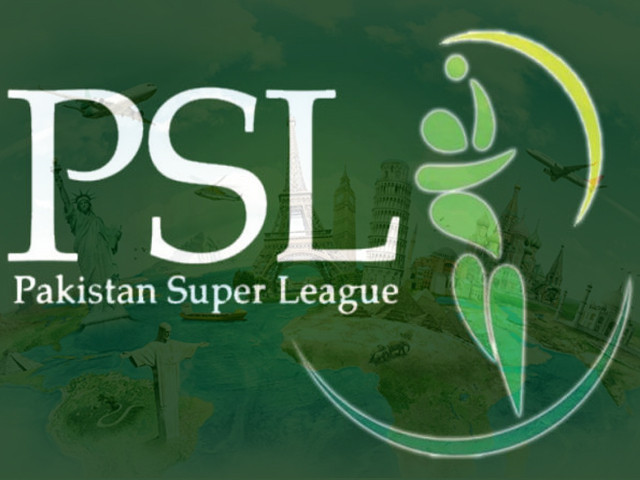 Adil Rashi and Moeen Ali have been bowling to Alastair Cook to try and earn the final spot in England's Ashes team. Photo: Reuters
Adil Rashi and Moeen Ali have been bowling to Alastair Cook to try and earn the final spot in England's Ashes team. Photo: ReutersEarlier before them, many English Test cricketers of Pakistani origin like – most recently and notably – fast bowler Sajid Mahmood and batsman Owais Shah had also represented England’s national cricket team before their unannounced retirement from Test cricket. The families of Moeen Ali and Adil Rasheed belong to Mirpur, Azad Kashmir. They immigrated and settled in England decades ago. Zafar Ansari is the son of Khizar Hayat Ansari, who is a famed scholar that migrated from Lahore, and whose elder son Akbar Ansari is also a first class cricketer in England.
 Zafar Ansari says his parents feels comfortable in Pakistan.Photo: Reuters
Zafar Ansari says his parents feels comfortable in Pakistan.Photo: ReutersThese are not the only international cricketers of Pakistani origin in contemporary cricket, in fact the list goes on. In the Australian national team, there is Test opener Usman Khawaja who was born in Islamabad and leg spinner Fawad Ahmed who left his native land because of security threats from radical militants in 2010 and inducted in Australia’s national cricket team in 2013.
 Pakistan-born leg-spinner Fawad Ahmed had his bid for Australian citizenship accepted in July 2013.Photo: AFP
Pakistan-born leg-spinner Fawad Ahmed had his bid for Australian citizenship accepted in July 2013.Photo: AFPImran Tahir needs no introduction. He is the South African leg spinner born in Lahore – who represented Pakistan in the U19 and Pakistan A teams. However, when he saw that he could not progress any further because of an abundance of quality spinners already present in Pakistan, he decided to ply his trade in South Africa. After years of playing county and domestic cricket in South Africa, he represented the Proteas in 2011.
 Imran Tahir is one of five Muslims to have been selected for South African squad taking part in the tri-nation ODI series with the West Indies and Australia in the Caribbean.Photo: AFP
Imran Tahir is one of five Muslims to have been selected for South African squad taking part in the tri-nation ODI series with the West Indies and Australia in the Caribbean.Photo: AFPSimilarly, Zimbabwe Test batsman, Sikandar Raza, was born in Sialkot and immigrated to Zimbabwe in 2001 to make his debut as a Zimbabwe Test cricketer in 2013.
 Sikandar Raza Butt is exemplified as the new wonder boy of Zimbabwe cricket.Photo: AFP
Sikandar Raza Butt is exemplified as the new wonder boy of Zimbabwe cricket.Photo: AFPUsman Khawaja, Fawad Ahmed, Imran Tahir, Moeen Ali, Adil Rasheed, Zafar Ansari and Sikander Raza all belonged to the International Cricket Council (ICC) full member cricket playing nations – while there are hundreds of other cricket internationals who are of Pakistani origin but playing for other ICC associate and affiliate member countries like Canada, China, USA, UAE etc.
The fame of international cricketers that are of Pakistani descent comes at the times when international cricket activities are extinct in Pakistan. Because of the volatile law and order situation, not only are international sportsmen and teams reluctant to travel to Pakistan, the country (with the exception of limited overs series against Zimbabwe in 2013) has not held any international match since the attack on the Sri Lankan cricket team in 2009. So Pakistan is dependent on Gulf States as home to hold their bilateral cricket series and other cricketing events of international repute for the survival of the game and their cricket fraternity.
Pakistan has been forced to hold their first ever professional and most lucrative event, the Pakistan Super League (PSL) Twenty20, away from their land. As mentioned earlier, foreign cricketers fear travelling and playing in Pakistan due to security concerns. Despite that, the first edition of the Twenty20 league was marked with huge success encouraging the Pakistan Cricket Board (PCB) to contemplate the expansion of the event in terms of participation.
According to plans for the first two annual editions, the league would be limited to five teams representing four provinces and the federal capital. But after that, the number of teams will be increased – bringing Azad Kashmir or the fifth province, Gilgit Baltistan, in their format. However, while doing so, the Pakistan cricket authorities haven’t considered the importance of overseas nationals and Pakistani expatriates. At a time when the country is facing threats regarding international isolation, it needs unity and for people from all walks of life, including ‘Little Pakistan’, to collectively participate.
The need for a professional cricket league in Pakistan was felt for quite long. However, considering the problems the country anticipated that it would face, and is still facing, it could not experiment with any new cricket event at home because foreign cricketers were not willing to play in Pakistan.
What’s more serious is, that these days, mega sports contests are seen as greater risks even in safe and developed countries. These events are attractive targets for terrorist activities, providing them with a high profile platform to flex their muscles to attain world-wide exposure. And, Pakistan’s fragile law and order situation is an open secret. The PCB had to launch the event abroad due to such conditions.
Due to limited resources and revenue, it was difficult to attract and convince franchise owners to invest in a league which was yet to launch – or in an experimental phase. Thus, the PCB began the PSL with just five franchise teams; namely Islamabad United, Karachi Kings, Lahore Qalander, Peshawar Zalmi and Quetta Gladiator, and brought them under agreement for two years. But now they are looking to expand the league by increasing the number of teams. A Franchise of Kashmir will most definitely launch, as tweeted by the PSL head Najam Sethi. However, there is still a need for Pakistanis from all walks of life, living home or abroad, to be represented at this global forum – that’s why Pakistani expatriates must be encouraged to participate.
My dream is to launch 6th Kashmir team in PSL this year. Hope our five franchisee partners will support me in this initiative.
— Najam Sethi (@najamsethi) April 22, 2016
The concept looks flimsy and is definitely unexpected, keeping in mind the current scenario in Pakistan. It is the only nation that plays its home matches outside the homeland, depriving the local spectator whilst losing sizable gate money. Our cricketers are officially banned to play in the Indian Premier League (IPL) and the ICC is toothless on this matter.
If Pakistan can be allowed to hold their international cricket matches and the professional Twenty20 league abroad for security reasons, then why can’t a franchise of Pakistani diaspora be fielded in the PSL, ideally representing international cricketers of Pakistani descent or expat Pakistani cricketers blended with required quota of foreign internationals in a Playing-XI. Not only would that enhance the sporting image of Pakistan as a global partner, it would also encourage the international community to reconsider isolating Pakistan and retain the confidence of Pakistani expatriates living around the world.
Our overseas Pakistanis play a vital role in the national economy, thus they deserve importance and active representation in the country’s socio cultural arrangements. Around eight million overseas Pakistanis are remitting more than $1.5 billion monthly, contributing a significant amount in the national exchange reserves. The State Bank of Pakistan expects remittances to cross $20 billion this financial year – the highest ever in their history.
Keeping in mind the importance of these expatriates, the state has not only allowed them to retain dual or multiple nationalities, but will also facilitate them as they would come handy in the next general election through electronic voting. Therefore, a team inclusive of overseas Pakistanis in the PSL will further provide them with a greater sense of national ownership and a genuine representation at the highest international sports forum.
For 2017, PSL drafted a number of international cricketers. Both nationals and foreigners have been included in the list and their selection will be finalised next week. Thereafter, the dates of the PSL 2017 will be scheduled in the Governing Council’ meeting – it would be great if they also introduce an additional team of overseas Pakistanis for the third edition of PSL, held in 2018.
The move of inducting overseas Pakistani team can do wonders. Cricket talent seems to be fading away in the country because of limited choices and security threats, hence this move can actually revive Pakistan cricket.



COMMENTS
Comments are moderated and generally will be posted if they are on-topic and not abusive.
For more information, please see our Comments FAQ